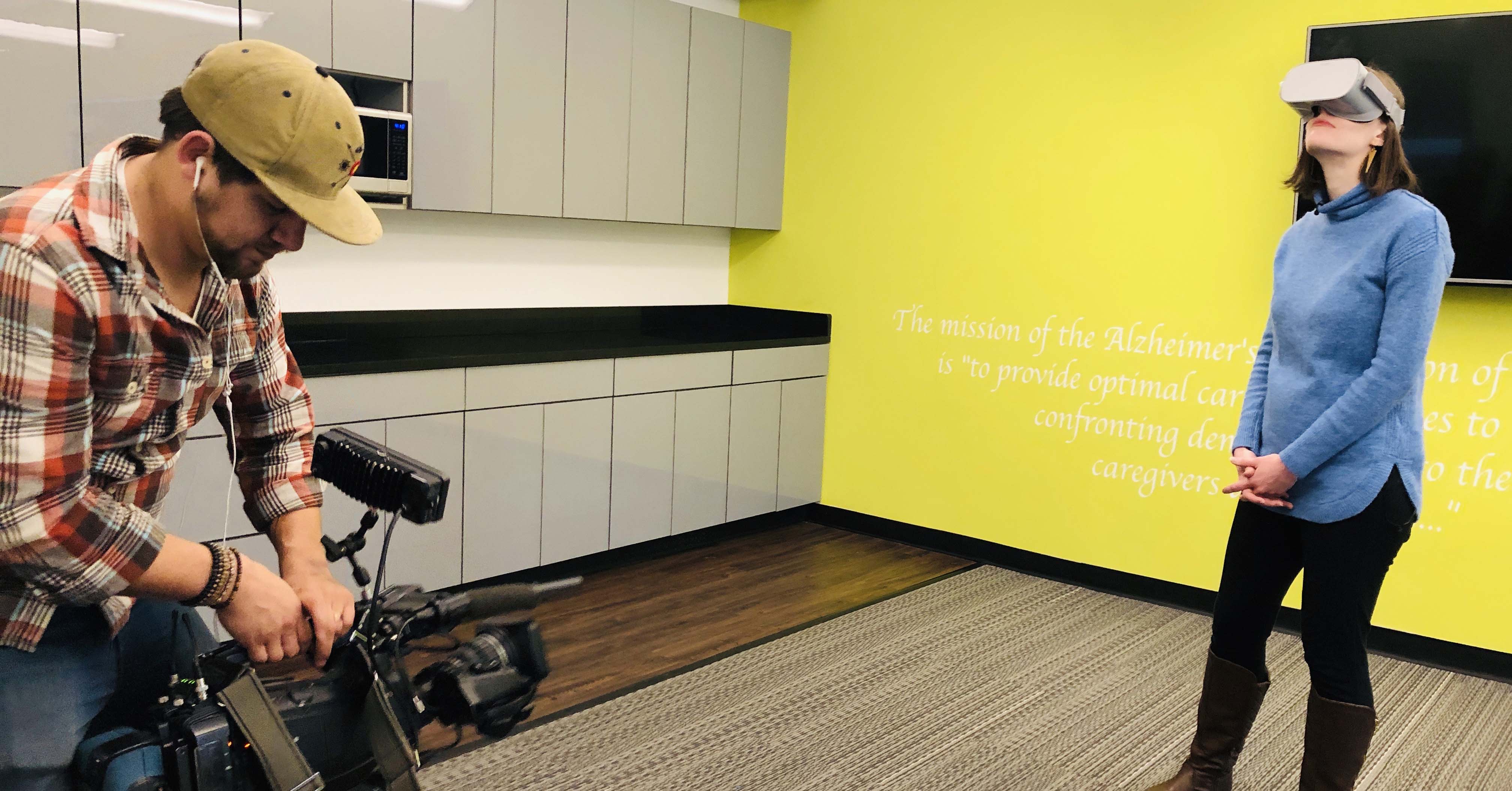Each year, 3 million seniors are treated in emergency rooms for fall injuries.¹ Research shows that only half of those who have experienced a recent fall will inform their doctor. If you are 65 or older, it is very important to not only tell your doctor if you have had a fall but evaluate your environment with the help of a loved one or caregiver to determine what can be done to reduce said risk in the home.
Fall Risks: 8 Steps to Prevent Injury in the Home
Posted by Laura Silverstein, MSN, RN, WCC in Health & Lifestyle
AFA Develops VR Tool for Understanding Dementia
Posted by Kelly La Rosa in Insider News, in Alzheimer's & Dementia
If you care for or know someone living with memory impairment, be it Alzheimer's or another form of dementia, you know that it is a condition that is hard to understand. Although we may never fully comprehend what it truly feels like for the individual, there are many ways to learn compassion and how to care for the memory affected loved one in your life. This is a task that the Alzheimer's Foundation of America have taken on through their Care Connection Sunset Series, a program which involves briefly immersing its participants in a virtual reality world where you experience symptoms like blurred vision, hallucinations, and disorientation.
Nutrition & Dementia: 5 Tips for Successful Mealtimes
Posted by Funda Fernandez, BSN, RN in Health & Lifestyle, in Alzheimer's & Dementia
Nutrition, while important for every stage of life, can pose certain hurdles as we age. Physical changes in the body and possible health issues make obtaining the recommended daily nutrients a bit more complicated. Add to this a diagnosis of dementia and you may be required to come up with some creative approaches during mealtimes.
Every stage of dementia presents its own set of challenges. Familiarizing yourself with what is common during each stage and getting to know your loved one’s personal preferences can go a long way in supporting their health in the best way possible.
5 Questions Every Caregiver Should Ask at a Doctor Visit
Posted by Laura Silverstein, MSN, RN, WCC in Caregiver Corner
As a caregiver, when you accompany your loved one or client on a visit to the doctor, it's important to be prepared ahead of time. One of the most important things you can do is make a list of the questions you want to ask your physician. Your list should include any recent concerns or things you’ve noticed about your loved one that have come up since your last visit. However, try to keep this list as concise as possible.This is a great opportunity to get answers straight from the doctor without waiting on hold or sifting through contradicting research online.
A strong caregiver-client relationship can be a difficult thing to achieve. There are many aspects of this unique relationship to consider when first introducing yourself to a new client. The following steps can help when establishing a sound connection with your client:
- Practice honesty, respect and compassion: Being open and honest with your client is an important part of being a good caregiver. Likewise, when you respect your client, they will be more inclined to show respect in return. They will also be more receptive when you show genuine concern for their well-being in the form of compassion.
Since late September 2018, True Care has held a TrueCaregiver Flu Prevention & Resource Fairs for all our HHAs in each of our main offices in Brooklyn, Queens, and the Bronx. Our caregivers got a free flu shot as well as access to a number of services as part of our TrueEDU program. These resources included free ESL courses with JCC of Greater Coney Island, GED classes at Metropolitan College of NY, and banking and financial services from PNC Bank, just to name a few.









